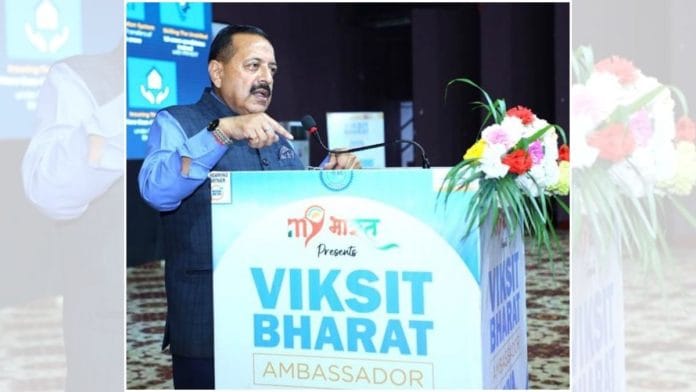Thank you dear subscribers, we are overwhelmed with your response.
Your Turn is a unique section from ThePrint featuring points of view from its subscribers. If you are a subscriber, have a point of view, please send it to us. If not, do subscribe here: https://theprint.in/subscribe/
It was a bright morning on July 24, 2025. Thousands of students across India, filled with nervous energy and yearlong determination, reached their examination centres—some having travelled over 1,000 km. But what awaited them was not an exam but a notice: “Exam Cancelled due to Technical Reasons.”
Even more shocking was that this wasn’t limited to one centre—the cancellation occurred at multiple centres nationwide, plunging thousands of aspirants into frustration and despair.
This was the SSC Phase-13 examination, scheduled to take place between July 24 and August 4, 2025, to fill 2,423 vacancies. However, on the very first day, glaring issues of mismanagement, poor infrastructure, and administrative failure came to light.
In response to this failure, thousands of youth gathered to protest peacefully, joined by their teachers and mentors, who stood by them in their demand for justice and accountability. But instead of empathy, the students were met with apathy. The commission not only disrespected the teachers and aspirants but also crushed the aspirations of thousands.
Thousands of students converged at Jantar Mantar under the “Delhi Chalo” slogan. One candidate expressed:
“Even if we manage to reach the centre after spending thousands, we are told the exam is cancelled. There’s no clarity on rescheduling. Our time, money, and most importantly, crucial years of preparation are being wasted. Who is answerable for that?”
A B.Ed candidate noted:
“We are not criminals; we are only here for justice… It’s the same story every year—leaks, mistakes, delays.”
Many students questioned the rationale behind awarding the exam contract to Eduquity, a company with a controversial past. The SSC had used the QCBS (Quality-Cost Based Selection) model for bidding, which gives equal weightage to both quality and cost. This time, Eduquity, which quoted nearly half the price of more reliable vendors, was awarded the contract—and the consequences became evident.
Earlier, exams were conducted by TCS, a company long trusted for its reliability and technical capacity. In contrast, Eduquity had been barred in 2020 due to serious procedural lapses, including technical failures, mismanagement, and suspected paper leaks.
Despite its tarnished track record, Eduquity was awarded several major government examination contracts, such as the MP Patwari exam and the Maharashtra MBA CET, among others. Some of these exams, too, were marred by controversies: last-minute cancellations, paper leaks, mass miscommunication, and other technical challenges—issues consistently flagged by student activist groups.
Outsourcing technical functions to private organizations was meant to enhance efficiency and professionalism. But when aspirants receive poor services, the question arises: Who is accountable? Eduquity? SSC? Or the government itself?
Regardless of the answer, it is always the student—the youth—who suffers. And when they dare to protest for their rights, they are met with harsh measures and indifference.
The Constitution of India guarantees the right to peaceful assembly under Article 19(1) (b). It also protects the right to vocation, ensuring fair access to public employment through due process. Various recruitment bodies were established to facilitate this process and select the best talents of our nation to serve the Bharat Mata in the journey toward Viksit Bharat @ 2047.
“Viksit Bharat” is not just a slogan; it is a national mission that demands collective effort. The youth of India are the engine of growth—whether economic, social, or political—through their energy, innovation, and capacity to drive productivity, consumption, and social reforms.
Yet a sluggish and unresponsive examination system is not just a betrayal of our youth but also a betrayal of the Constitution and the dream of a developed India by 2047.
The Path Ahead
Reimagining the examination system must begin with structural reforms in exam-conducting agencies. Transparent discussions must take place in Parliament to ensure transparency and institutional accountability. A fixed annual exam calendar should be released and strictly followed. In case of mismanagement, a well-defined protocol must be communicated to all stakeholders to prevent panic. A time-bound grievance redressal mechanism should be instituted to ensure timely justice for affected aspirants.
Future contracts should be awarded through the Quality-Based Selection (QBS) model, placing greater weight on vendor reliability and quality of services than cost. Independent audit of exam-conducting agencies.
India, being a transforming and developing power, requires strong, reliable, and efficient administrative institutions. Leaders shape the nation, while it is these institutions that truly deliver on this vision, and thus producing well-trained and value-laden officers in synergy with the constitutional goals should be the priority of the nation.
̶ Ayush Kumar Sen (Public Policy Analyst, Youth & Economy, Article Contributor, Global Affairs)
These pieces are being published as they have been received – they have not been edited/fact-checked by ThePrint.


